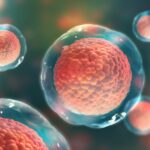By 2026, commercial chimeric antigen receptor (CAR)-T cell therapies are on track to make up the largest share of oncology drug sales for pediatric and young adult patients1. This is impressive given that the first CAR-T therapies only gained US Food and Drug Administration (FDA) approval in 2017 and demonstrates
the power of these new modalities to treat human disease.
As CAR-T therapies realize their commercial potential, there has been a shift in the industry to de-risk global supply chain logistics in order to maximize manufacturing success. Industry leaders recognized early on that the use of fresh leukapheresis starting material was a key logistical challenge to overcome2.
Challenges with Fresh Leukapheresis Material
When using fresh leukapheresis, there is a limited window of time (24−48 hours) within which manufacturing must commence since cell viability and function rapidly decline over time. Any unexpected delays in material-transit to the manufacturing facility can decrease the CAR-T manufacturing success rate.
For autologous CAR-T therapies, failure to manufacture within this timeframe constraint means that the patient will need to go through the apheresis process again, which can be difficult depending on the patient’s health status. This is also true for allogeneic CAR-T therapies that utilize healthy donor leukapheresis material where delays can introduce additional levels of complexity into the supply chain and manufacturing process.
Managing manufacturing slots can also prove to be expensive, and if the manufacturing window is missed, it can cause backlogs that affect future production4. Cryopreserved leukapheresis (or leukopaks) starting material could be an important part of the solution.
Key Advantages of Cryopreserved Material
Cryopreserved Leukopaks offer significant advantages over fresh and are continuing to gain importance as a logistical necessity for the globalization of cell and gene therapy products, especially as early concerns over their performance have been dispelled. Cryopreservation offers flexibility for patients or donors to undergo leukapheresis at a time when the individual’s health is most optimal to provide T cells, rather than accommodating manufacturing slot availability2. It also provides protection from external factors, such as shipping delays, and reduces manufacturing time constraints.
The value of cryopreservation is recognized by leading pharmaceutical companies, many of whom are adopting cryopreserved leukopaks as part of their commercial process. For instance, Novartis adapted cryopreservation (Figure 1) into the manufacturing process for Kymriah®—the first CD19-specific autologous CAR-T cell product approved by the FDA for the treatment of patients with relapsed/refractory B-cell malignancies— during early clinical trials as part of process enhancements to meet the demands of centralized manufacturing and to improve manufacturing success rates and product quality2-3.

Comparability Between Fresh and Cryopreserved Leukopaks
A growing body of evidence from academic researchers and pharmaceutical companies is proving that cryopreservation is a viable strategy for CAR-T manufacturing schemes despite the minor losses in cell recovery and viability from the freeze/thaw cycle compared with fresh apheresis products. Importantly, cryopreservation did not impact important quality parameters in the manufacturing process such as transduction efficiency (TE), CD3%, CD4:CD8 ratios or expansion of the CAR-T product1,5. In fact, cryopreservation may be beneficial since it preferentially depletes cell types that suppress ex vivo T cell growth, such as neutrophils and myeloid-derived suppressor cells1.
For Novartis, fresh and cryopreserved leukopaks were evaluated extensively in several comparability studies before they made the switch in the Kymriah® manufacturing process3,4. One comparability study was conducted with healthy donors to evaluate growth kinetics and CAR-T product characteristics such as cellular composition, TE, CAR expression levels and functional response (i.e., interferon-γ production in response to CD19-expressing target cells). The results of these studies confirmed the equivalence of cryopreserved to fresh leukapheresis.
Additional studies were performed to optimize and validate the cryopreservation unit operation itself for commercial production. The cryopreservation media, freezing process (optimizing freeze rates and temperatures), tolerance limits for maximum hold times (time between collection and processing) prior to cryopreservation, temperature ranges for shipment, and storage stability were evaluated extensively. Key findings dictated best practices to preserve the integrity and quality of the cryopreserved starting material. For instance, Novartis researchers found temperature excursions above −40°C reduced viability post-thaw leading to the recommendation that storage and transport in vapor phase liquid nitrogen (LN2) is necessary to preserve leukopak quality for downstream manufacturing. Compared to cryopreserved material that was stored for 6 weeks, cryopreserved leukopaks that were stored properly for 30 months demonstrated comparable post-thaw cell viability and recovery of mononuclear cells. This stability data greatly increases the flexibility for scheduling manufacturing runs.
Mounting evidence has incentivized developers to make the switch from fresh to cryopreserved leukopaks to de-risk their supply chains. Initial clinical trials for Kite/Gilead’s anti-CD19 CAR-T cell product axi-cabtagene ciloleucel (KTE-X19) utilized fresh product, but for subsequent ZUMA clinical trials (NCT02348216) the company has made changes to incorporate cryopreserved leukopaks into their process with no significant impact to product quality.
Cryopreserved material gives researchers and manufacturers a proven mechanism to simplify logistics and future-proof their supply chains by being able to meet set delivery dates and batch quantities, while maintaining the quality of product. This will be crucial to overcome global logistical challenges associated with using fresh leukapheresis material during scale up as CAR-T therapies move towards mainstream medicine3.
Strategic Partnerships Are Critical to Success
In a previous blog, we examined the science behind cryopreservation and highlighted key factors that influence its success. The process is multi-faceted and requires thorough knowledge of cell physiology and a keen understanding of cooling kinetics to minimize cell loss caused by unwanted ice formation. In particular, T cells (CD3+/CD4+ and CD3+/CD8+ cells) are often identified as more sensitive than the other cell subpopulations, requiring additional expertise when cryopreserving mononuclear cell isolations to preserve cell viability and function6.
Working with established suppliers that have proven expertise, optimized protocols, and a robust compliance framework for GMP cryopreservation of leukapheresis material can be extremely valuable to expedite workflows, improve speed-to-market, and ultimately meet commercial demand for CAR-T therapies.
Interested in switching from fresh to cryopreserved? Learn more about AllCells’ GMP Cryopreserved Leukopaks or Research use only Cryopreserved Leukopaks.
References
- Abou-El-Enein M, Elsallab M, Feldman SA, et al. Scalable Manufacturing of CAR T cells for Cancer Immunotherapy. Blood Cancer Discov. 2021;2(5):408-422. doi:10.1158/2643-3230.BCD-21-0084
- Tyagarajan S, Schmitt D, Acker C, Rutjens E. Autologous cryopreserved leukapheresis cellular material for chimeric antigen receptor-Tcell manufacture. Cytotherapy. 2019;21(12):1198-1205. doi:10.1016/j.jcyt.2019.10.005
- Adriaansen J, Stanton J, Schaut W, Bowden R. Compliance and cost control for cryopreservation of cellular starting materials: An industry perspective. Cytotherapy. 2022;24(7):750-753. doi:10.1016/j.jcyt.2022.02.004
- Tyagarajan S, Spencer T, Smith J. Optimizing CAR-T Cell Manufacturing Processes during Pivotal Clinical Trials. Mol Ther Methods Clin Dev. 2019;16:136-144. Published 2019 Nov 29. doi:10.1016/j.omtm.2019.11.018
- Panch SR, Srivastava SK, Elavia N, et al. Effect of Cryopreservation on Autologous Chimeric Antigen Receptor T Cell Characteristics. Mol Ther. 2019;27(7):1275-1285. doi:10.1016/j.ymthe.2019.05.015
- Meneghel J, Kilbride P, Morris GJ. Cryopreservation as a Key Element in the Successful Delivery of Cell-Based Therapies-A Review. Front Med (Lausanne). 2020;7:592242. Published 2020 Nov 26. doi:10.3389/fmed.2020.592242




